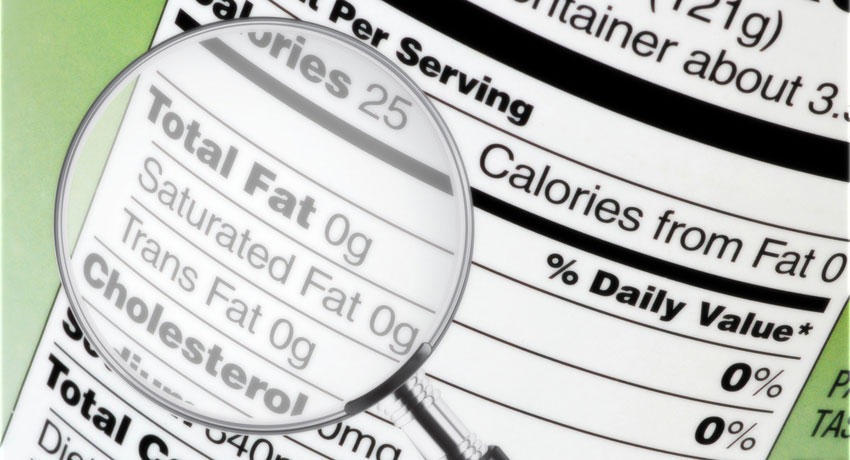The FDA Takes The First Step Toward Eliminating Trans Fat

Nutritional facts image via shutterstock
The FDA announced a preliminary decision on Thursday that hydrogenated oils, more commonly known as trans fats, are no longer to be labeled GRAS, or “generally recognized as safe.”
Dr. Margaret A. Hamburg, the FDA Commissioner, said in a press release:
“The FDA’s action today is an important step toward protecting more Americans from the potential dangers of trans fat. Further reduction in the amount of trans fat in the American diet could prevent an additional 20,000 heart attacks and 7,000 deaths from heart disease each year – a critical step in the protection of Americans’ health.”
The FDA has published a detailed decision in Friday’s Federal Register, and has opened up a 60 day comment period where comments and further data about the decision can be collected. At the end of the period, January 7th, 2014, the FDA will reconsider to see if the decision should stand. Boston certainly seems to think it will.
Dr. Barbara Ferrer, the Executive Director of the Boston Public Health Commission said in a statement earlier today:
“The Boston Public Health Commission applauds the FDA’s proposal to remove harmful artificial trans fat from the American diet. Under Mayor Menino’s leadership, Boston was ahead of the curve when it came to eliminating this ingredient from restaurant menus. Now, five years later, we know that consumers can still enjoy delicious food that is simply healthier.”
“This is a very important step forward in public health policy,” says Dr. Frank Hu, Professor of Nutrition and Epidemiology at Harvard School of Public Health. “It’s a very good example of translating strong scientific evidence into strong public policy.”
Kate Scarlata, a Boston-based dietitian and the author of The Complete Idiot’s Guide to Eating Well with IBS agrees. “Part of the FDA’s job is to keep our food supply safe,” she says. “I think banning artificial trans fat is a welcome change to our food environment.”
Hu says that trans fat has been linked to increased risk of heart attack, diabetes, and obesity. “Trans fat is actually a double whammy,” says Hu. “It has been shown to decrease good cholesterol and increase bad cholesterol. And that leads not only to heart attacks, but to other chronic diseases like obesity and diabetes. So I think the FDA definitely made the right decision.”
Daily individual consumption of trans fat has decreased over the last ten years, Hu says, from roughly 4.5 grams per day to a little more than 1 gram. “But it still remains a public health issue because it still lurks in fast food, commercial bakery items, and some snacks,” he says.
Once the decision is finalized in January, will we notice a change in our food? Hu says no. “I don’t think consumers will notice anything because the little trans fat that remains is so hidden,” he says. “And that makes this policy very important, because removing trans fat improves the quality of our food without needing to change consumers’ behavior. This policy can have a wide impact without that difficult change.”
Scarlata says that trans fat makes insulin sensitivity worse, which leads to weight gain and diabetes. “And as if diabetes, obesity, and heart disease aren’t enough, trans fat is linked with prostate and colon cancer too. So good riddance, trans fat—we are much healthier without you.”


